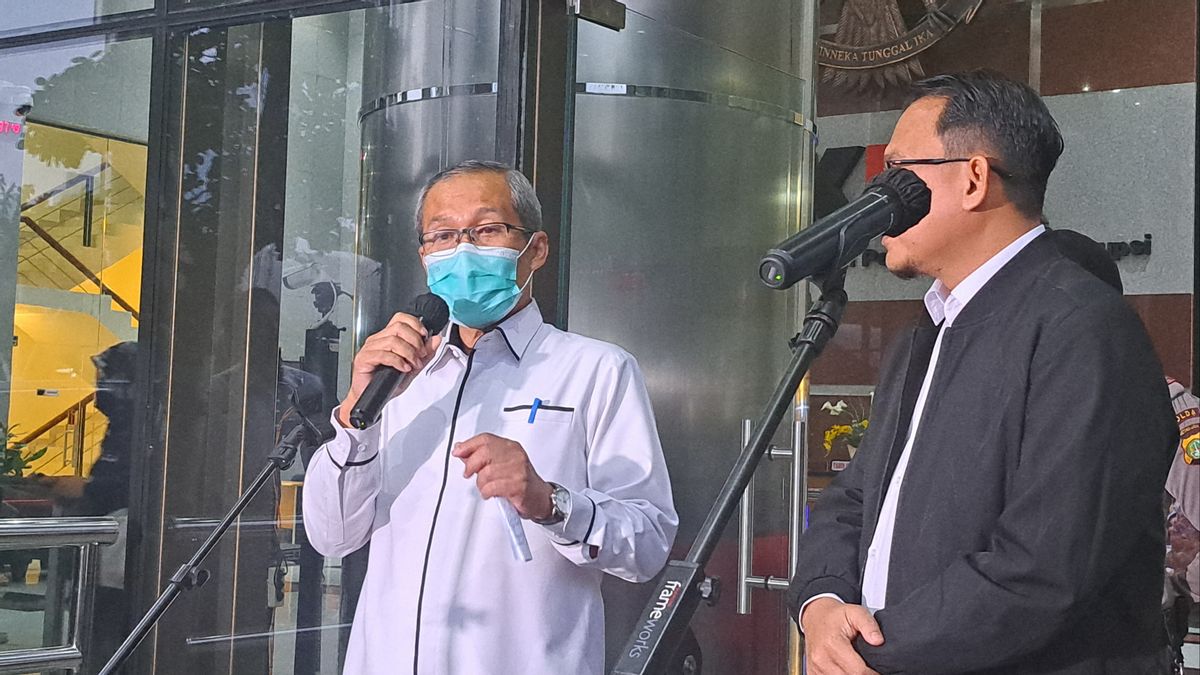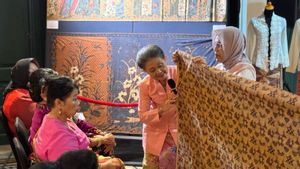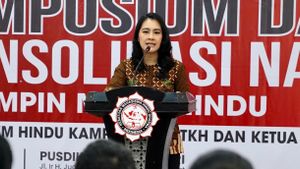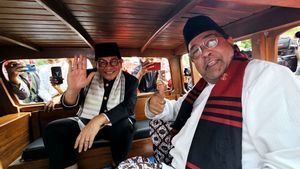JAKARTA - The Corruption Eradication Commission (KPK) confirmed that the judicial review of Articles 36 and 37 of the KPK Law proposed by Alexander Marwata did not represent the institution. This decision was taken by the Deputy Chairperson of the KPK himself.
"As far as I know, the submission process is carried out personally, not on behalf of the institution," said KPK spokesman Tessa Mahardika to reporters, Saturday, November 9.
This reason made Tessa reluctant to comment further on the judicial review submitted to the Constitutional Court (MK). "We'll just have to wait for whether it is accepted or not, or what the results will be," he said.
"Yes, the KPK certainly hopes for the best regardless of the results of the Constitutional Court," continued Tessa.
Meanwhile, Alexander Marwata said the judicial review he conducted was because the two articles were vulnerable to being a tool for criminalization.
Article 36 of the KPK Law states that KPK leaders are prohibited from having direct or indirect relationships with suspects or other parties who are related to criminal acts of corruption handled by the KPK for any reason. Meanwhile, Article 37 contains the same prohibition but is intended for employees.
"This article for us can be used as a tool to criminalize the leadership and employees of the KPK," Alexander told reporters in a written statement quoted on Friday, November 8.
SEE ALSO:
Alexander called the formulation of this article unclear. As a result, a different interpretation appears from the formula of the law.
"If the suspect is clear, the case is already at the investigation stage and the suspect already exists. But who is the other party, what stage is the limit on the case? For whatever reason, what is the meaning," he explained.
"If there is no explanation, it could be the application as much as law enforcers want. Are public reports that have not even been investigated also considered cases," continued Alexander.
As for now, Alexander Marwata is currently in a case at the Polda Metro Jaya. He was investigated because he met with the former Head of Yogyakarta Customs, Eko Darmanto, who was in the case of gratification and money laundering (TPPU) handled by the KPK.
The English, Chinese, Japanese, Arabic, and French versions are automatically generated by the AI. So there may still be inaccuracies in translating, please always see Indonesian as our main language. (system supported by DigitalSiber.id)

















